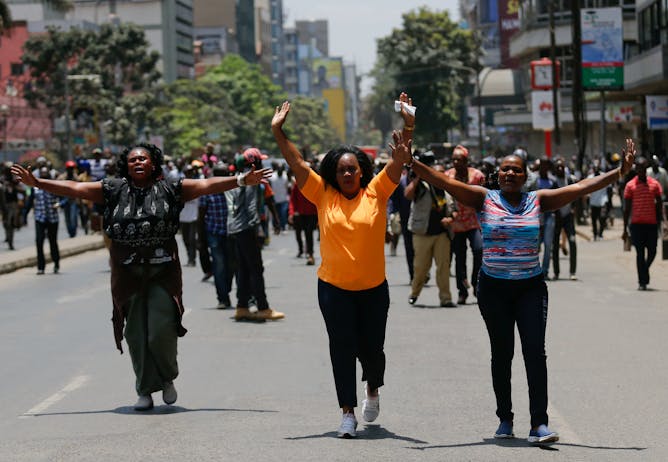|
Kenya’s electoral commission has struggled to restore public trust since the country’s August elections were annulled. Just days before fresh elections are due to be held the commission finds itself in a crisis. One commissioner has resigned and the chairman seems ready to throw in the towel. Sekou Toure Otondi argues that while the legal avenue may look like the most feasible path to a solution, the answer to Kenya’s election problem is in fact a political one.
Ebola. Zika. Monkeypox. Rabies. Disease outbreaks are happening all the time, and proper surveillance systems are crucial to detect and manage these health crises. Many developing countries struggle to create these systems because of limited public health infrastructure. Jo Halliday explains that a focus on local diseases can help solve the problem.
|

National Super Alliance supporters demonstrating for the sacking of election officials involved in August’s cancelled presidential vote.
Thomas Mukoya/Reuters
Sekou Toure Otondi, University of Nairobi
Despite avenues for legal redress, the solution to Kenya’s constitutional crisis is political. The leadership on both sides of the political divide must reach an agreement for the sake of the nation.
|
Health + Medicine
|
-
Jo Halliday, University of Glasgow
By tackling local threats and controlling existing diseases, countries are able to build the capacity needed to deal with future emerging disease threats.
|
|
Politics + Society
|
-
Keymanthri Moodley, Stellenbosch University
Emeritus Archbishop Desmond Tutu embraces everything noble in Aristotelian virtue ethics and African philosophical systems alike.
-
Herman Wasserman, University of Cape Town
Forty years after the apartheid regime clamped down on the free press, South Africa's media continues to face threats, albeit in more subtle forms than in the past.
|
|
Environment + Energy
|
-
Piotr Wolski, University of Cape Town; Bruce Hewitson, University of Cape Town; Chris Jack, University of Cape Town
Cape Town promised alternative water sources with the ongoing drought being declared a disaster. Its main strategy is water rationing but climate models are also being used.
|
|
From our international editions
|
-
Emily Thomas, Durham University
Some philosophers believe space is a giant container, while others think it's all in our heads.
-
Stuart Thompson, University of Westminster
New research shows bees see a blue halo around flowers thanks to nanostructures on its petals.
|
|